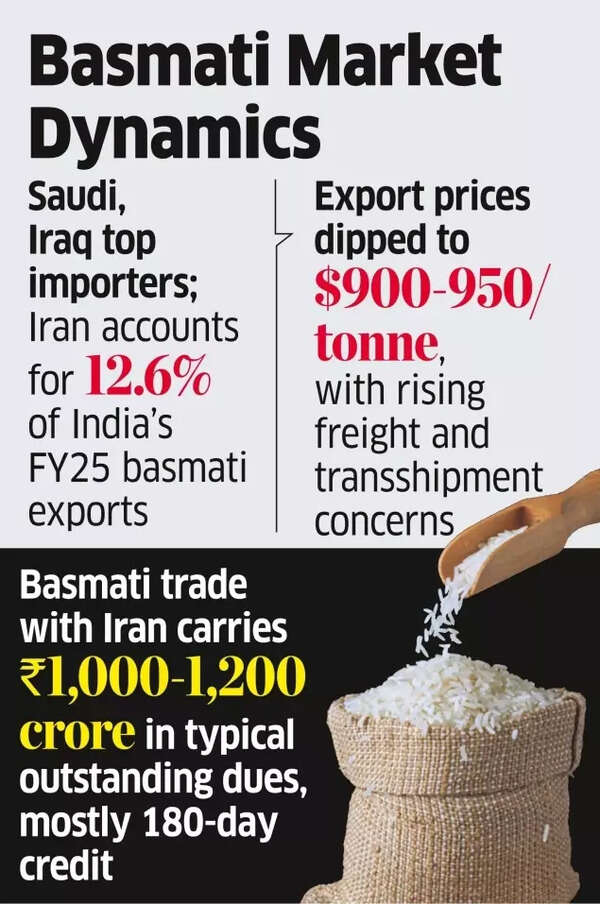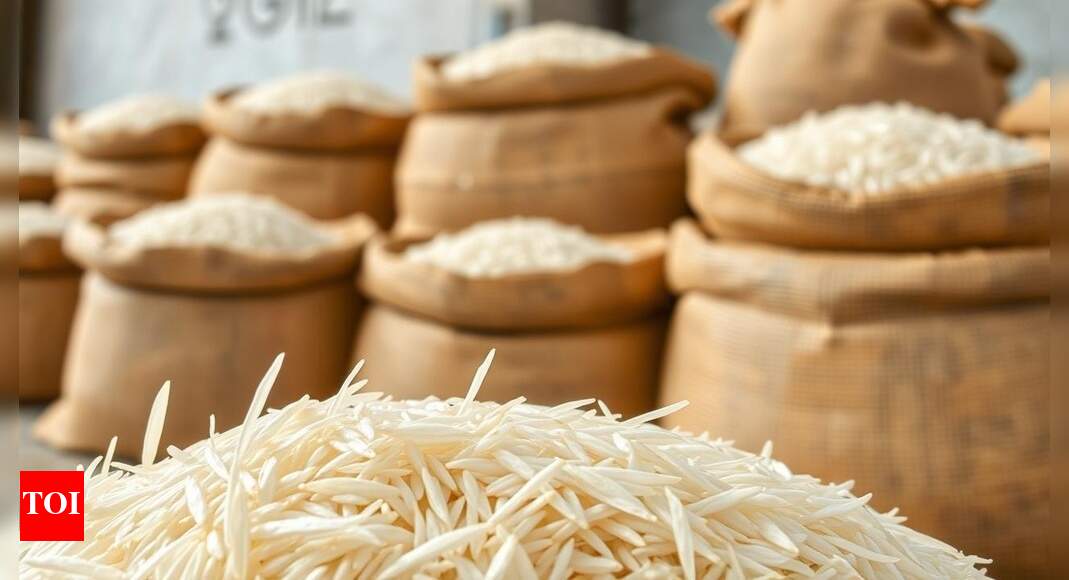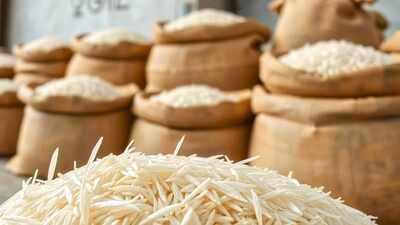Basmati rice prices, which saw an increase of 15-20% in the past two months due to higher exports, are expected to decrease in the upcoming weeks as exports to Iran may decline amidst its ongoing conflict with Israel.According to the Agricultural and Processed Foods Export Development Agency (APEDA), Iran ranks as the third-largest purchaser of Indian basmati rice, following Saudi Arabia and Iraq. During 2024-25, India’s basmati rice exports to Iran were valued at ₹6,374 crores, representing 12.6% of India’s total basmati exports for that period. Major importing nations from West Asia and Iran had enhanced their purchases after Indian Basmati rice prices had fallen to ₹75-90/kg, leading to an upward price movement.“The export prices have come down from $950-1000/tonne about a month ago to $900-950/tonne,” said Rajesh Jain Paharia, an exporter of Basmati rice according to an ET report.

Basmati rice
“Prices have corrected, as freight is expected to go up due and transshipment issues,” said Paharia.“Prices of Indian Basmati rice had reached their bottom by April as the global export demand was less due to multiple factors. However, export demand increased as everyone wanted to stock at low prices, bringing a surge in exports in May and a consequent increase in prices by about 15-20%,” said Dhaval Shah, an exporter and domestic trader of Basmati rice in Maharashtra. “Although the prices are likely to remain stable for now, factors like the Trump effect or any escalation of the war will decide the future course of prices. Countries tend to buy more to ensure their food security if they see indications of escalation of war.”The Indian Rice Exporters Federation’s national president, Prem Garg, expressed concerns regarding current sea shipments and pending payment issues.Trade estimates indicate that outstanding dues for Basmati trade with Iran typically amount to ₹1,000-1,200 crore. “In our trade with Iran, we take 20% advance payment and rest all is on 180 days credit,” said Pahariya.

